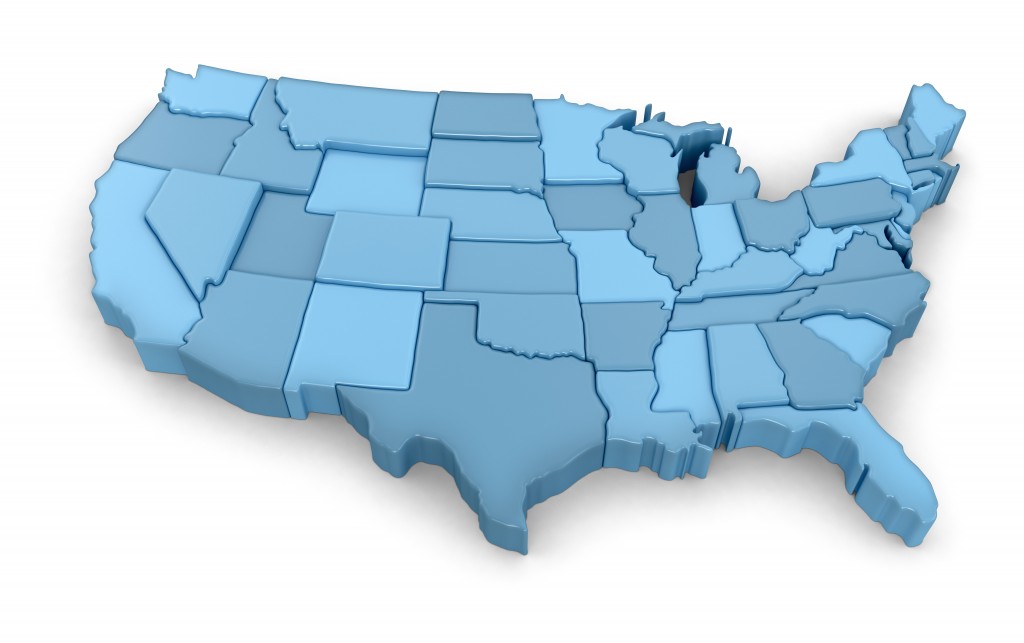We’ve seen a relentless rise in entrepreneurship over the past few decades. One third of Americans are now self-employed and a vast majority of them run small and medium sized businesses.
The urge to go off and start something on your own is natural, and with all the options available now, it’s much easier to start a business than ever before. According to data published by the World Bank, starting a new business in the United States takes an average of just six days.
But regardless of how quick or easy it the initial steps are, launching a business isn’t something that you should rush into. Proper planning and execution takes time – there are so many important choices to make at the start and some of these decisions will play a major part in how you operate once you’re up and running.
Perhaps one of the most important choices you’ll be making is the state where you incorporate. Most people simply incorporate in the state where they live, while some ambitious entrepreneurs sign their papers in “business friendly” states like Delaware, Nevada or Wyoming.
 But there is a little more to it. Issues with taxes and logistics may have to be considered before you put pen to paper and decide the birth state your burgeoning business. Here are a few things you should consider…
But there is a little more to it. Issues with taxes and logistics may have to be considered before you put pen to paper and decide the birth state your burgeoning business. Here are a few things you should consider…
Formation Fees
This is, of course, a one-time fee, but that doesn’t mean it’s not worth considering. Some of the lowest fees can be found in states like Hawaii, Iowa, Colorado and Arkansas. All of these states charge close to $50 to register. Meanwhile, it could cost you close to $310 to start up in Texas and over $455 to start in Connecticut. Even one-time fees can affect your bottom line in the early stages.
Annual fees & Filings
Now, this is a fee that reoccurs every year, so it’s worth thinking about the annual fees charged to your LLC or corporation. Then there are the annual filings as well. The secretary of state needs a one-page annual report every single year along with a filing fee. In states like Nevada, this could cost close to $325 while in Wyoming it may be just $52.
Delaware charges $300 for LLCs and $225 for corporations, while some of the larger states like New York and California charge smaller fees like $9 and $21 respectively. And the only two states in the country that do not require such filings to be made annual are Alabama and Ohio.
Franchise Taxes
On top of the filing fees we’ve just mentioned and the state income taxes, many states also choose to levy a franchise tax. This is simply a tax levied by the state of your business for the privilege of being able to conduct your undertaking there.
Some states like Nevada and Wyoming don’t have a franchise tax at all and others, like Delaware for example, calculate the tax on the basis of the outstanding shares and par value, so that smaller companies pay negligible amounts and larger corporations pay their fair share. States like California don’t seem concerned by the pressure a tax could put on small mom and pop shops and charge a minimum of $800 a year in franchise taxes for all businesses.
Legal & Court Systems
A recent report found that more than 64% of all Fortune 500 companies are registered in Delaware. This is because Delaware is the only state that has a separate court for business disputes. The cases that come through these courts have judges instead of juries to hand out verdicts.
It’s no surprise that many business owners prefer having judges with business experience make decisions in corporate litigation, rather than jury members who may not have industry know-how to apply to a case. This is a genuine advantage, but only for bigger corporations that have to deal with complex business litigation on a regular basis.
Investors
Investors do seem familiar with business laws in Delaware and some may even insist that a new startup incorporate there. This could be a great reason to incorporate in Delaware, but this too depends on the nature of your business and whether you are likely to consider outside funding in the future.
State Corporate Income Taxes
You probably already know that taxes are no small consideration for the savvy business owner, so you might want to weigh your options based on which states offer the best structure for you. Here are a few things to think about…
- Six states charge no corporate income tax at all – these include: South Dakota, Ohio, Nevada, Texas, Washington and Wyoming.
- Ohio, Washington and Texas do charge a tax on the gross income of a business.
- Some states like South Dakota, Wyoming and Nevada have no personal income tax.
Remember that if you operate your business in a state other than the one you incorporated in, you will still be liable for the taxes there. So, incorporating in Nevada, for example, doesn’t mean you don’t have to pay California incomes taxes if you live and work there.
On paper, it may be simple and fast to get your new businesses launched, but the smart entrepreneur knows that it’s critical to take your time. After all, it’s far better to take a little longer to educate yourself and perhaps even consult a commercial attorney so you can make the right choices at the start than it is to make costly changes down the line.
About the Author
 Andrew May is a Chicago hedge fund attorney and commercial lawyer who enjoys sharing his expertise on a variety of online financial and business publications. He is also the founding member of May Law in downtown Chicago. For more, visit the May Law blog today.
Andrew May is a Chicago hedge fund attorney and commercial lawyer who enjoys sharing his expertise on a variety of online financial and business publications. He is also the founding member of May Law in downtown Chicago. For more, visit the May Law blog today.

